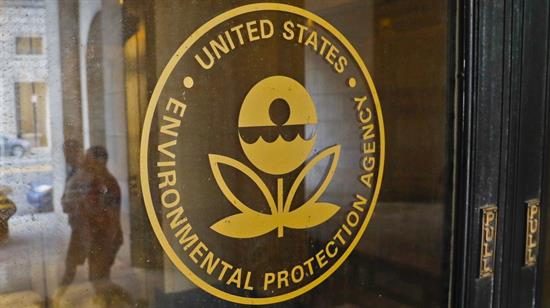Press Releases
Merkley, Pingree: EPA’s Reckless Gutting of Environmental Justice Programs Harms Communities
Washington,
March 27, 2025
Senate Interior-Environment Appropriations Subcommittee Ranking Member Jeff Merkley (D-OR) and House Interior-Environment Appropriations Subcommittee Ranking Member Chellie Pingree (ME-01) denounced plans by Environmental Protection Agency (EPA) Administrator Lee Zeldin to eliminate all of the agency’s offices and positions related to environmental justice and diversity, equity, and inclusion. Their letter follows Administrator Zeldin submitting the EPA’s statutorily required reorganization plans to the House and Senate Committees on Appropriations. This reorganization was slated to take effect as soon as yesterday. “We reject and oppose the so-called reorganization actions submitted to our Committees…that would not reorganize, but instead eliminate, all diversity, equity, and inclusion (DEI) offices and all environmental justice offices and positions at the Environmental Protection Agency (EPA) by March 26, 2025,” wrote the Ranking Members of the Appropriations subcommittees that oversee funding for the EPA. “Additionally, in violation of the above referenced section, the Agency failed to comply with longstanding reorganization and reprogramming requirements. We are alarmed at the President’s and your efforts to dismantle programs designed – and funded on a bipartisan basis – to address the disproportionate environmental harms predominantly suffered by low-income, rural, and racially diverse communities.” “Countless other examples show how communities are persistently marginalized, such as 'Cancer Alley' in Louisiana where a concentration of many petrochemical plans and refineries contaminate the air and land of surrounding Black and underrepresented communities; when the state of Mississippi neglected to repair a failing drinking water system for decades that serves 160,000 people in the minority-majority city of Jackson, exposing the entire population, including children, to high levels of lead and sewage; and when the Tennessee Valley Authority moved four million cubic yards of spilled coal ash, which has been shown to cause brain cancer, lung cancer, and leukemia, to a predominantly Black community of Uniontown, Alabama,” they continued.The Senate and House Interior-Environment Appropriations Subcommittees funded, on a bipartisan basis, these programs at the EPA. For environmental justice, the EPA programs provided $100 million for fiscal year 2022, $108 million for fiscal year 2023, $100 million for fiscal year 2024, and most recently $100 million for fiscal year 2025. The senior lawmakers stressed, “This funding must be allocated through dedicated programs by staff with knowledge and experience to support marginalized communities like these – a task made impossible by firing staff and closing these critical offices.” “We reject and oppose these office closures and staff terminations as well as the illegal impoundment actions that have already been taken to eliminate funding for these annual appropriations and funding provided under the Inflation Reduction Act for environmental justice and DEI programs,” the Appropriators strongly concluded. Full text of the letter can be found by clicking here and follows below: Dear Administrator Zeldin: We reject and oppose the so-called reorganization actions submitted to our Committees on March 20, 2025 pursuant to section 442 of Division E of the Further Consolidated Appropriations Act, 2024 (P.L. 118-42) and subsequently carried forward in the Full-Year Continuing Appropriations and Extensions Act, 2025 (P.L. 119-4) that would not reorganize, but instead eliminate, all diversity, equity, and inclusion (DEI) offices and all environmental justice offices and positions at the Environmental Protection Agency (EPA) by March 26, 2025. Additionally, in violation of the above referenced section, the Agency failed to comply with longstanding reorganization and reprogramming requirements. We are alarmed at the President’s and your efforts to dismantle programs designed – and funded on a bipartisan basis – to address the disproportionate environmental harms predominantly suffered by low-income, rural, and racially diverse communities. The concept of environmental justice is not new. It began nearly 50 years ago when wealthy residents in Warren County, North Carolina, protested the siting of a toxic waste plant near their neighborhood. Instead, the plant was constructed in a rural and low-income area, polluting the area with PCBs, cancer-causing toxic chemicals. Countless other examples show how communities are persistently marginalized, such as “Cancer Alley” in Louisiana where a concentration of many petrochemical plans and refineries contaminate the air and land of surrounding Black and underrepresented communities; when the state of Mississippi neglected to repair a failing drinking water system for decades that serves 160,000 people in the minority-majority city of Jackson, exposing the entire population, including children, to high levels of lead and sewage; and when the Tennessee Valley Authority moved four million cubic yards of spilled coal ash, which has been shown to cause brain cancer, lung cancer, and leukemia, to a predominantly Black community of Uniontown, Alabama. These events and others prompted the EPA to convene the first Environmental Equity Work Group in 1990, followed by the establishment of the Office of Environmental Justice in 1992. By 1994 the federal government ordered the integration of environmental justice into federal agency missions and work. This work is not new to the federal government or EPA and environmental justice at the EPA has always been about all Americans having the right to the same environmental protections and benefits regardless of race, color, national origin, or income. Our Committees have specifically provided funding – again, on a bipartisan basis – for environmental justice programs, including $100 million for fiscal year 2022, $108 million for fiscal year 2023, $100 million for fiscal year 2024, and most recently $100 million for fiscal year 2025. This funding must be allocated through dedicated programs by staff with knowledge and experience to support marginalized communities like these – a task made impossible by firing staff and closing these critical offices. We reject and oppose these office closures and staff terminations as well as the illegal impoundment actions that have already been taken to eliminate funding for these annual appropriations and funding provided under the Inflation Reduction Act for environmental justice and DEI programs. ### |

